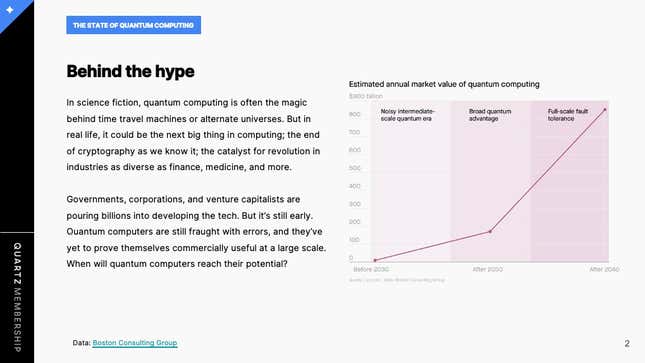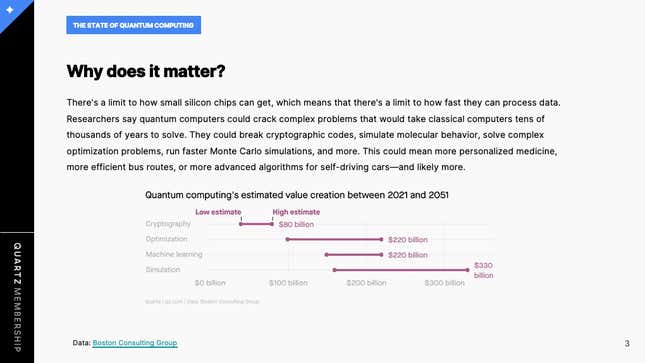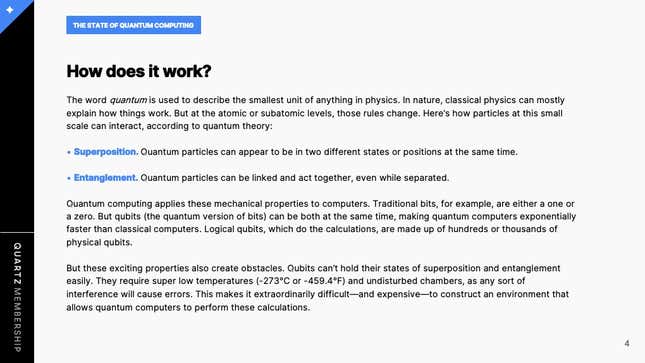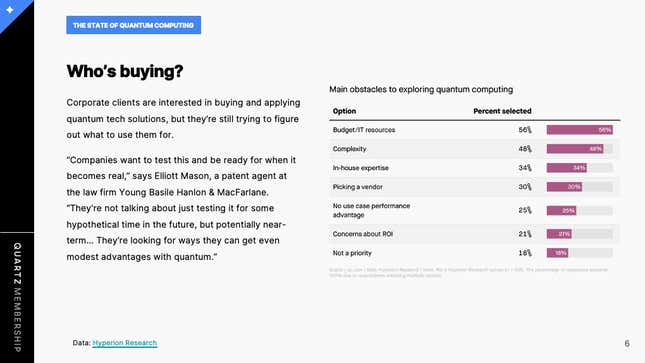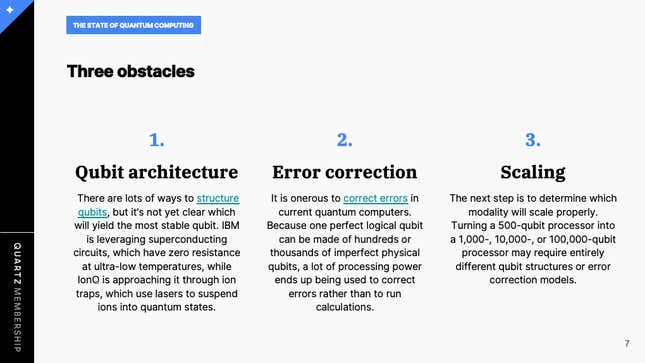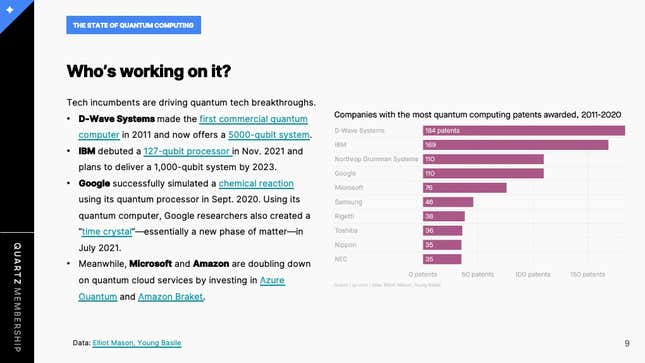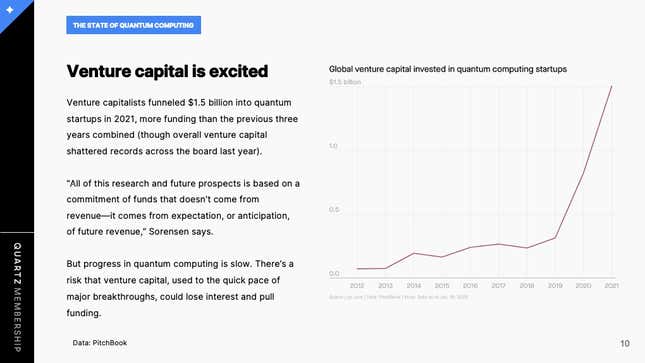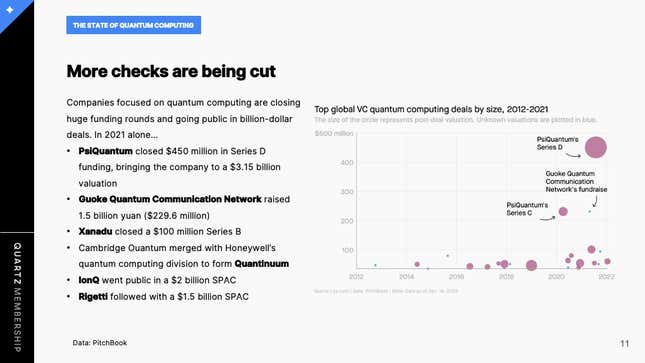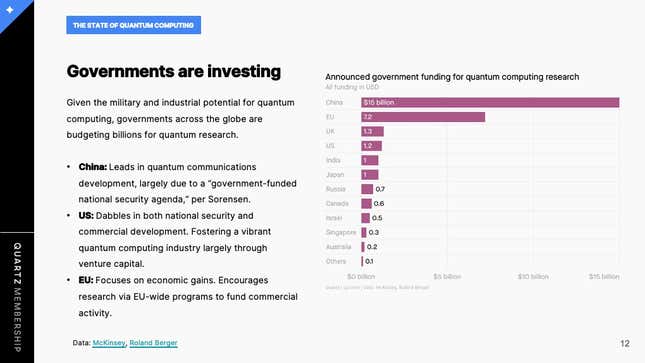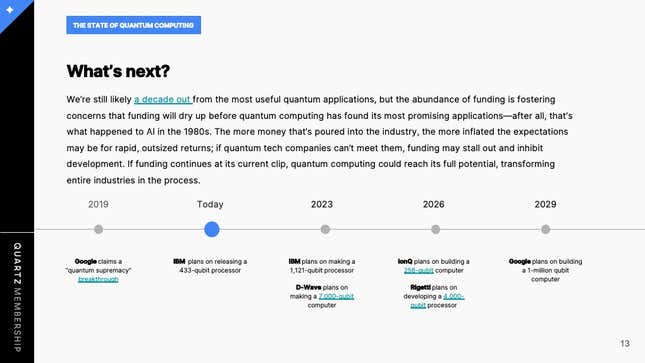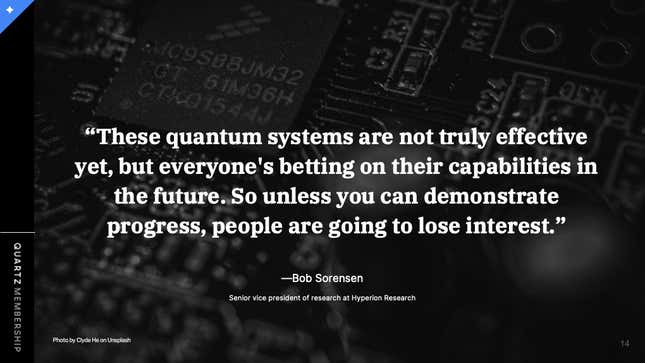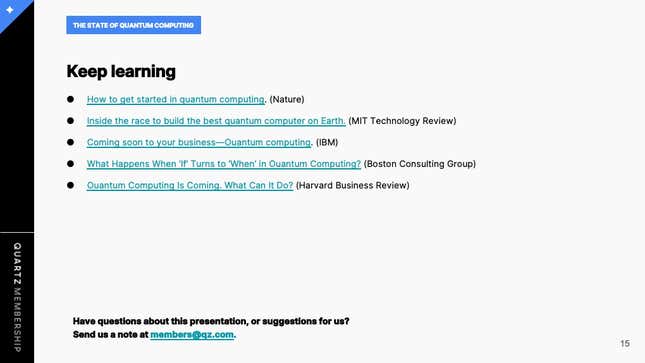In science fiction, quantum computing is often the magic behind time travel machines or alternate universes. But in real life, it could be the next big thing in computing; the end of cryptography as we know it; the catalyst for revolution in industries as diverse as finance, medicine, and more.
Governments, corporations, and venture capitalists are pouring billions into developing the tech. Venture capitalists funneled $1.5 billion into quantum startups in 2021, more funding than the previous three years combined (though overall venture capital shattered records across the board last year). Companies like PsiQuantum and Guoke Quantum Communication Network closed mega-rounds worth hundreds of millions of dollars.
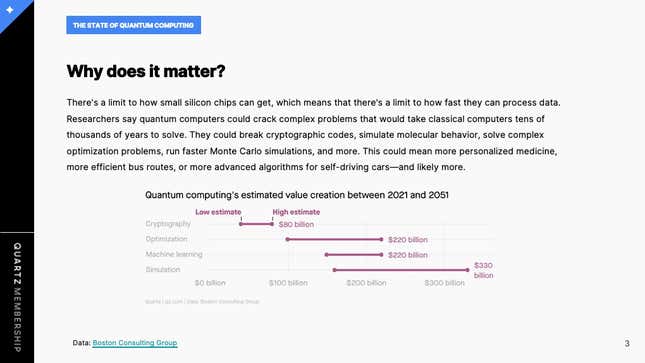
“All of this research and future prospects is based on a commitment of funds that doesn’t come from revenue—it comes from expectation, or anticipation, of future revenue,” says Bob Sorensen, the senior vice president of research at Hyperion Research.
But progress in quantum computing is slow. Quantum computers are still fraught with errors, and they’ve yet to prove themselves commercially useful at a large scale. When will quantum computers reach their potential?
Dig deeper into the state of quantum computing in our latest presentation.
Keep scrolling to see all of the slides in our quantum computing presentation. Or, if you’d prefer, you can view the PDF version or download the PowerPoint file. Download the Excel file for access to the raw data for our charts. You can also download the Powerpoint, PDF, and Excel files, together here.
Please share any feedback about what would make these presentations more useful—or topics you’d like to see us cover—by emailing us at members@qz.com. These presentations are an exclusive benefit for Quartz members. We’d love it if you’d encourage any friends or colleagues who express interest to become a member so they can access them too.

